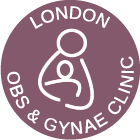If you have miscarried, we need to make sure all the pregnancy tissues are removed from your uterus. There are both surgical and non-surgical options available.
NON-SURGICAL
If there’s no risk of infection, it may possibly allow the tissue to pass naturally, which usually takes 1-2 weeks. If necessary, your doctor can prescribe medication to help the tissue pass more easily. You should expect bleeding that is longer and heavier than your normal period. You may also pass tissue that resembles blood clots. Symptoms can include nausea, diarrhoea, and/or painful cramps, for which we can prescribe you medication. Afterward you should have an ultrasound to make sure all of the tissue has passed.
SURGICAL
Surgical removal of tissue is recommended if your bleeding is heavy or if you show signs of an infection. There are two common procedures:
VACUUM ASPIRATION
This procedure can be performed in our office. It involves inserting a thin tube into the uterus and using gentle suction to clear out the tissue. A local anaesthetic can be used to make you more comfortable during the procedure. Dilation and curettage (D&C) procedure can be performed in our clinic & involves dilating the cervix and using a special instrument to remove all of the tissue. You may receive general or regional anaesthesia.

